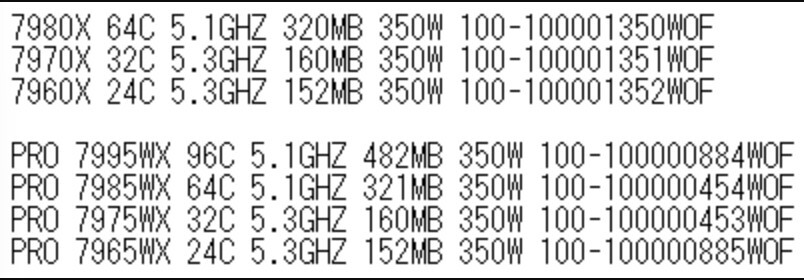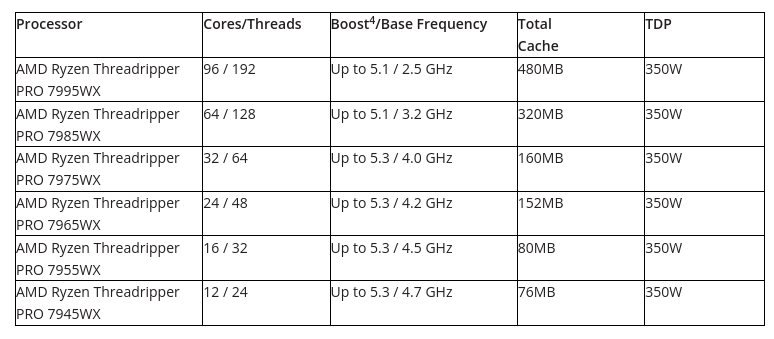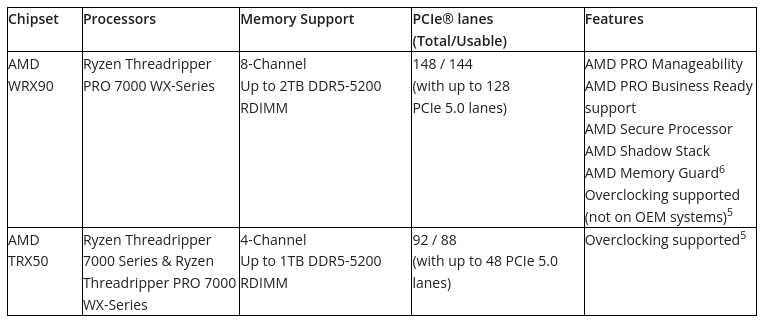erek
[H]F Junkie
- Joined
- Dec 19, 2005
- Messages
- 10,941
Pretty cool
"Moving onto the Threadripper PRO 7000WX series, and we have four processor models—the PRO 7995WX (100-100000884WOF), the PRO 7985WX (100-100000454WOF), the PRO 7975WX (100-100000453WOF), and the 7965WX (100000885WOF). All four are high core-count models. The PRO 7995WX leads the pack with a mammoth 96-core/192-thread core-count, 5.10 GHz maximum boost, and 482 MB of total cache. The PRO 7985WX is 64-core/128-thread, with 5.10 GHz maximum boost, and 320 MB total cache. The PRO 7975WX is 32-core/64-thread, with 5.30 GHz maximum boost, and 160 MB total cache. Lastly, the 7965WX is 24-core/48-thread with 5.30 GHz maximum boost, and 152 MB of total cache."

Source: https://www.techpowerup.com/314900/amd-ryzen-threadripper-7000-series-lineup-revealed
"Moving onto the Threadripper PRO 7000WX series, and we have four processor models—the PRO 7995WX (100-100000884WOF), the PRO 7985WX (100-100000454WOF), the PRO 7975WX (100-100000453WOF), and the 7965WX (100000885WOF). All four are high core-count models. The PRO 7995WX leads the pack with a mammoth 96-core/192-thread core-count, 5.10 GHz maximum boost, and 482 MB of total cache. The PRO 7985WX is 64-core/128-thread, with 5.10 GHz maximum boost, and 320 MB total cache. The PRO 7975WX is 32-core/64-thread, with 5.30 GHz maximum boost, and 160 MB total cache. Lastly, the 7965WX is 24-core/48-thread with 5.30 GHz maximum boost, and 152 MB of total cache."

Source: https://www.techpowerup.com/314900/amd-ryzen-threadripper-7000-series-lineup-revealed
![[H]ard|Forum](/styles/hardforum/xenforo/logo_dark.png)




